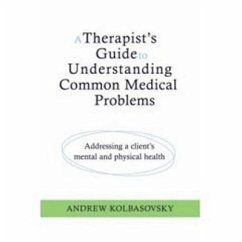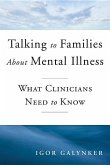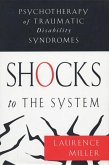People seeking therapy for mental health issues often also have medical problems such as diabetes, AIDS, asthma, or heart conditions. As a therapist, should you ignore the medical conditions that your clients may have, and simply stick to what you're trained in, healing the mind and not focusing on medical or bodily issues? Or, should you inquire about any medical issues during intake and give them full attention? As a non-medically trained practitioner, how much should you really be expected to know about these issues? These answers and more can be found in this book. Geared specifically to nonmedically trained mental health professionals, it gives practitioners a better understanding of exactly how physical health issues play out in the context of mental health issues, equipping clinicians with the information necessary to more effectively create and manage a comprehensive psychotherapeutic treatment regimen.
Hinweis: Dieser Artikel kann nur an eine deutsche Lieferadresse ausgeliefert werden.
Hinweis: Dieser Artikel kann nur an eine deutsche Lieferadresse ausgeliefert werden.








